YOU ARE BOUVÉ
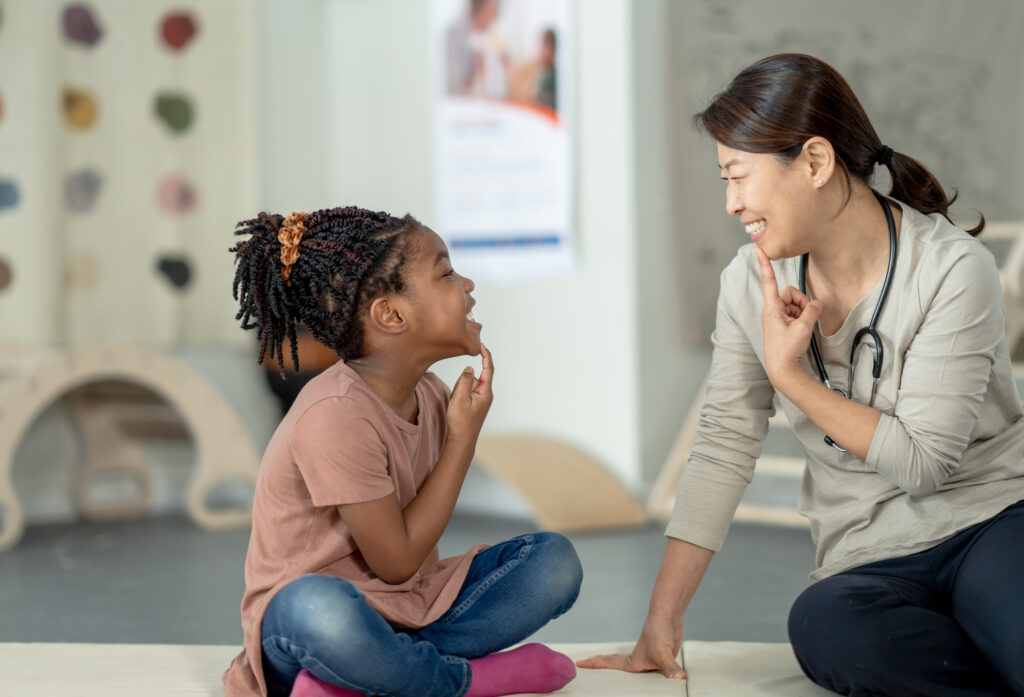
With a Master of Science (MS) degree from Northeastern University’s Speech-Language Pathology program, you will influence society in profound ways — for example, enabling children with autism to communicate effectively, relieving adolescents’ fears of speaking dysfluently in the classroom, and helping stroke survivors resume activities in which they had previously participated. Our program has a strong interprofessional focus.
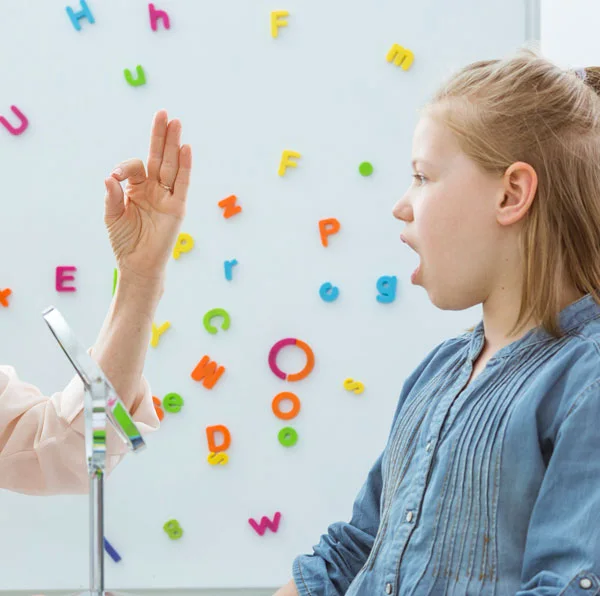
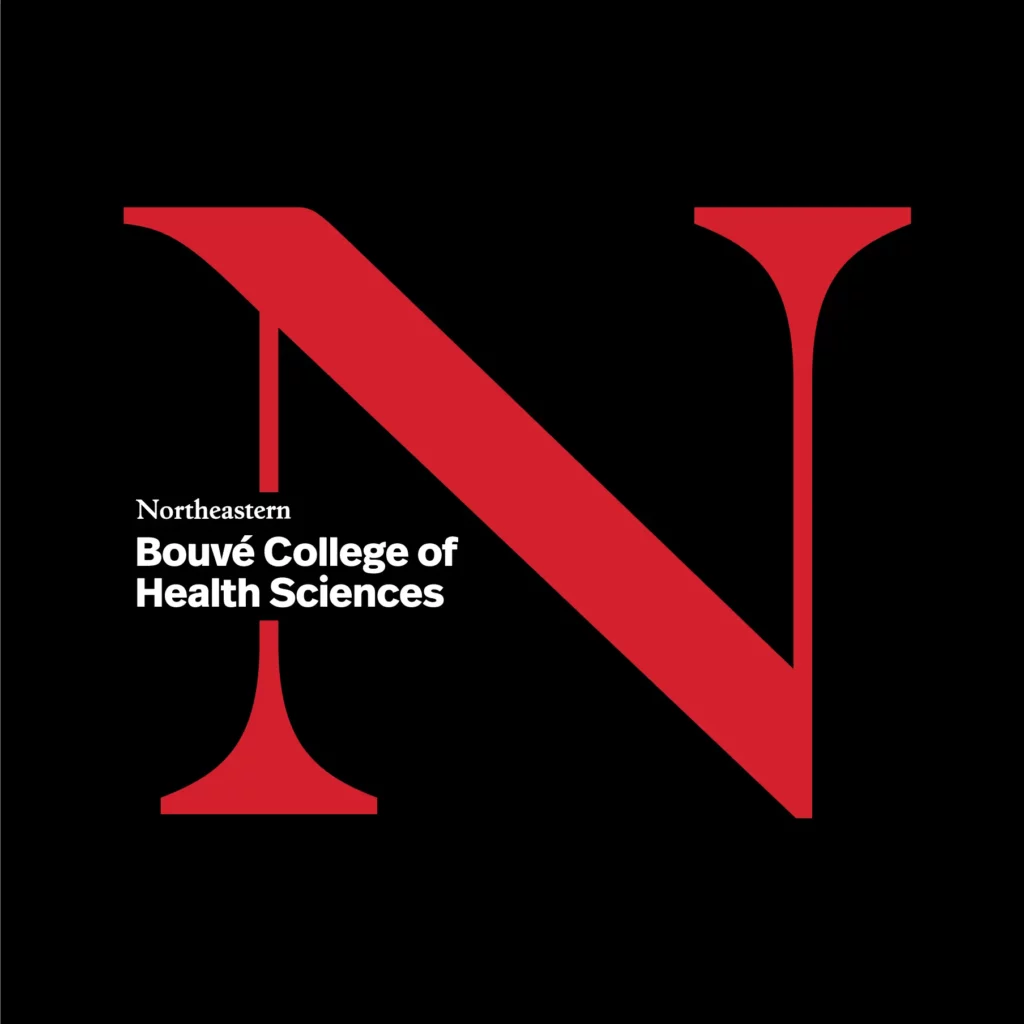
Our faculty consists of internationally recognized researchers who are active in their fields and involve students in their research. The development and applied use of technology play integral roles in the research of many of the faculty.
Faculty research spans everything from evidence-based practice using augmentative and alternative communication, software development for unintelligible speakers’ ability to learn to use inflection to communicate, to research focuses include speech-motor control and language and health literacy in at-risk populations.
Strong faculty links with world-recognized educational and medical institutions provide our students with the opportunity to apply classroom theory to evidence-based speech-language pathology interventions in the field.
Northeastern’s Graduate speech-language pathology Program is highly regarded, and off-site supervisors find our students well-prepared for clinical practice. Following graduation, many of our students are offered employment at sites where they interned.
Graduates go to work in educational settings, medical settings, research laboratories, private practices, skilled nursing facilities, and more. The academic, clinical, research, and service opportunities that comprise our SLP Graduate Program allow our students to acquire the knowledge and skills needed for a lifetime of professional achievement and social contribution.
Degree type:
– MS in Speech-Language Pathology
Study options:
– On ground (Boston Campus)
— On ground (Charlotte, NC Campus)
– Full-time
Application deadlines:
Jan 15, 2024 (for Fall 2024)
GRE: Not required
F1: Eligible
Note: Our MS in Speech-Language Pathology is also offered on our Charlotte, NC campus.
Learn more
The Master of Science in Speech-Language Pathology requires a total of 60 semester hours at the graduate-level. Course work is required in core areas of clinical practice, scientific theory, and research/statistics.
In addition, clinical practica (Clinic I-IV) are typically in a minimum of three settings. Students may choose either a thesis or a non-thesis option. Students who choose the non-thesis option must pass a Comprehensive Examination to graduate.
Throughout the Program, students must maintain a minimum grade average of B (3.0) in academic courses and in clinical work. Following graduation, students are eligible for state educator licensure and are ready to start their Clinical Fellowship Year.
SLP graduate students may also apply for admission to an Early Intervention Certificate Program. Because of the additional requirements of this Program, a full-time SLP graduate student’s average 2-year tenure at Northeastern may be extended. More information about the Early Intervention Program may be found on their webpage.

Free Career Guide:

Explore possible career paths and identify the essential skills needed to advance in the industry.
Sample curriculum, subject to change.
Our Master of Science in Speech-Language Pathology Graduate Program is a 2-year program. Students may simultaneously complete a separate, but complementary, Early Intervention Certificate Program. Read about this program.
The chart below describes a sequence of courses as taught in the recent past. This chart is not a planning document for what course will be taught in which semester (spring or fall) in the future. For that information, students should consult with their academic advisor or see the university course catalog.
Five prerequisite undergraduate courses or their equivalents must be completed with a grade of C or better before matriculating into our Master of Science in Speech-Language Pathology Graduate Program.
Applicants must have a Bachelor of Arts or Bachelor of Science from an accredited university with a preferred GPA of at least 3.35. You do not need an undergraduate degree in Communication Disorders to apply to our Master of Science in Speech-Language Pathology graduate program
To apply, applicants must also have the following:
Any Bachelor of Arts or Bachelor of Science from an accredited university
5 prerequisite courses completed (above)
GPA of at least 3.35 is preferred
Three letters of recommendation (academic and professional)
Curriculum vitae/Resumé
Personal statement and scenario response
Official transcript from baccalaureate program and all college coursework
TOEFL scores are required for all applicants who do not hold undergraduate or graduate degrees from U.S. institutions or institutions where English is the primary language. Please use CSDCAS code #122. The required iBT TOEFL score is 115. An IELTS language exam score of 8.5 or higher can be used in place of the TOEFL exam.
Please reach out to us.
Prof. Sarah Young-Hong,
Graduate Program Director, Assistant Clinical Professor
617-373-3698
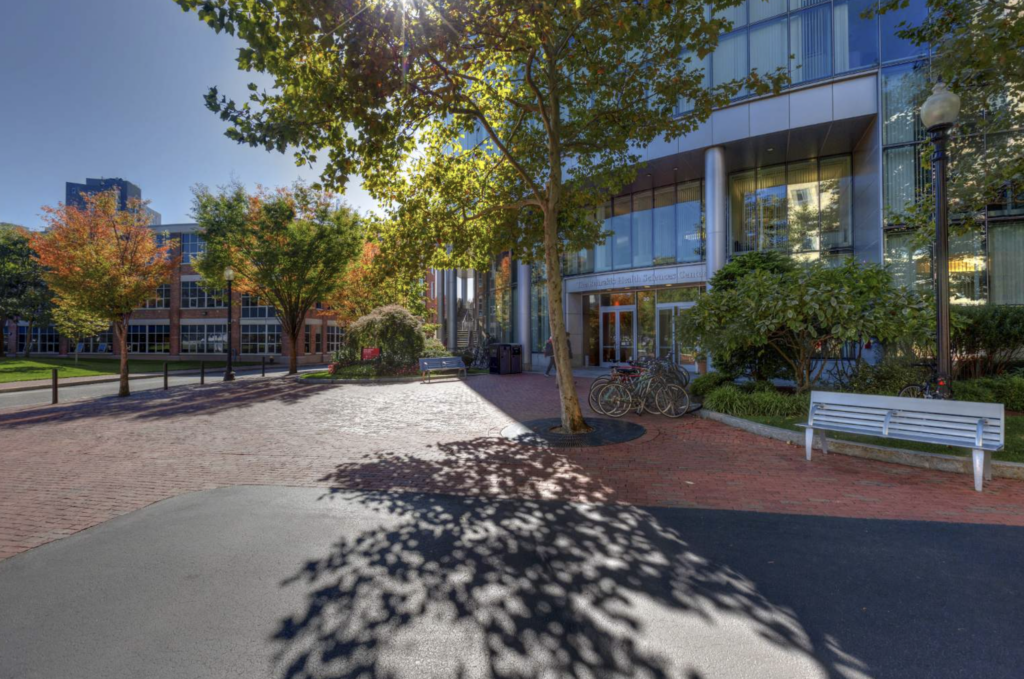
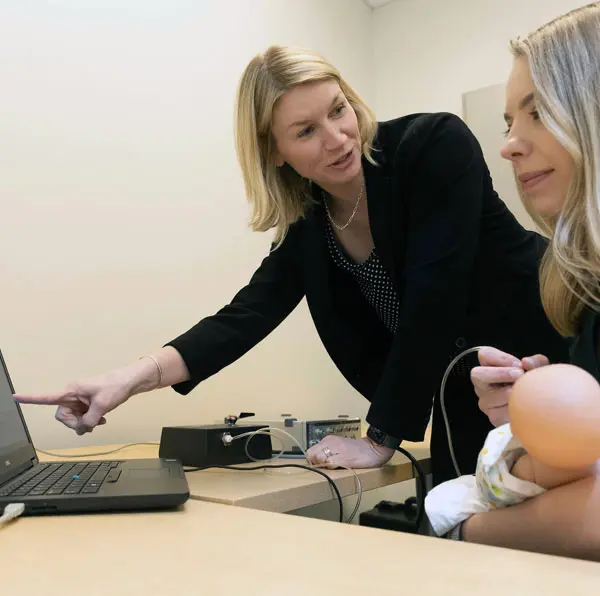
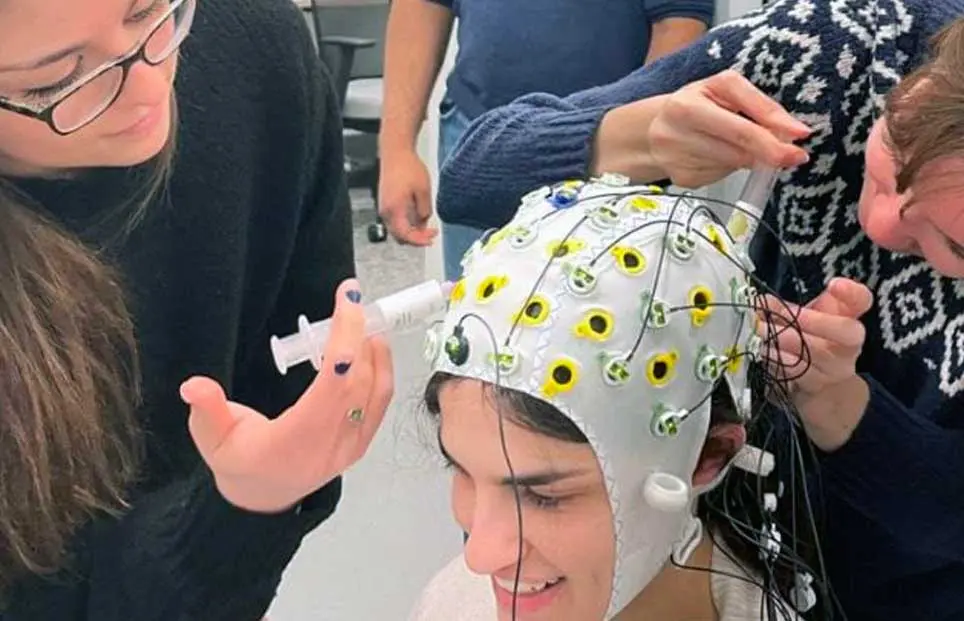
Our Program’s clinical home is the Northeastern Speech-Language and Hearing Center, housed in the state-of-the art Behrakis Health Sciences Building. Individuals of all ages from surrounding communities come to the highly regarded Center for diagnostic and therapeutic services. Here, beginning in their first semester of Clinic (Clinic 1), students engage in rich clinical experiences under the guidance of highly skilled clinic supervisors. Learn more about the Speech-Language and Hearing Center.
Generally, beginning in Clinic 2, students work multiple days a week with speech-language pathologists as student clinicians in community-based hospitals, outpatient clinics, educational institutions, and other settings. Examples of clinic placement sites include Braintree Hospital, Children’s Hospital, and Boston Public Schools. Consistent with ASHA guidelines, on-campus and off-campus clinical assignments provide students with hands-on experience evaluating and/or treating children and adults with a variety of diagnoses, disorders, and impairments such as language, cognitive-linguistic, and swallowing disorders:
While many of our external clinical sites are accessible by public transportation, not all are. Consequently, it is necessary for students to have access to a car during the semesters that they are enrolled in Clinics 2-4. Availability of a car increases the options for placement sites at which students have opportunities to gain diverse and extensive clinical experience.
Northeastern University emphasizes service to the inner-city neighborhoods of Boston and to surrounding communities. Through some of the Department of Communication Sciences and Disorders’ community service links, students have opportunities to participate in speech-language-hearing screenings at local schools and hospitals and to facilitate children’s story-telling groups at local family homeless shelters.
The Master of Science (M.S.) education program in speech-language pathology (residential and satellite) at Northeastern University is accredited by:
The Council on Academic Accreditation in Audiology and
Speech-Language Pathology of the American
Speech-Language-Hearing Association
2200 Research Boulevard, #310
Rockville, MD 20850

Information on how to file a complaint regarding this program’s accreditation status can be found on the CAA website.
Praxis examination pass rates for the previous three periods/testing cycles for graduates of the Master of Science in Speech-Language Pathology program based on available ETS data.
3-year average Praxis pass rate = 90.30%
| Academic year | # Taking exam | # Passed exam | % Passed exam rate |
| 2022-2023 | 59 | 50 | 89% |
| 2021-2022 | 30 | 28 | 93% |
| 2020-2021 | 45 | 43 | 96% |
An average program completion rate for graduate students in the last 3 years in relation to program’s published expectation for length of time for students to complete the degree, based on enrollment data.
3-year average program completion rate = 95.04%
| Academic Year | Completed within expected time frame | Not completed within expected time frame | Not completed | Completion rate |
| 2022-2023 | 84 | 2 | 1 | 97% |
| 2021-2022 | 31 | 1 | 0 | 97% |
| 2020-2021 | 41 | 3 | 0 | 93% |
The below five prerequisites must be completed and approved before entering the program but they do not need to be completed before applying.
The five course pre-requisistes for entering the program are:
Prior to graduation from the Master of Science in Speech Language Pathology, students must have taken one, 3-4 credit undergraduate course in each of these four areas: Biological Sciences, Statistics, Physical Sciences (chemistry or physics), and Social Sciences and Behavioral Sciences.
You can take the prerequisite courses at any college, preferably through an ASHA accredited program, live or online. You need to get a C or better in each of these courses.
You can also take them through the Communication Sciences and Disorders Department at Northeastern University. We offer each at least once per academic year, in person and/or online. We will be offering five speech-language pathology prerequisite courses in a synchronous, online format during Summer 2024. These five courses satisfy the prerequisite requirements for the Master of Science in Speech-Language Pathology program at Northeastern University, in addition to many programs at other institutions.
The following courses will be offered during Summer 2024 in either the Summer 1 (May 6 – June 25) or Summer 2 (July 1 – August 20) semester:
SLPA 1102 Language Development (4 credits)
Tuesday 5:30-8:50pm EST | Summer 1 | CRN: 41809
SLPA 1103 Anatomy & Physiology of the Speech and Hearing Mechanism (4 credits)
Tuesday 5:30-8:50pm EST | Summer 2 | CRN: 61479
SLPA 1200 Phonetics (4 credits)
Wednesday 5:30-8:50pm EST | Summer 2 | CRN: 61498
SLPA 1203 Introduction to Audiology (4 credits)
Wednesday 5:30-8:50pm EST | Summer 1 | CRN: 41810
SLPA 1205 Speech and Hearing Science (4 credits)
Monday 5:30-8:50pm EST | Summer 1 | CRN: 41811
An application is not required to register for these courses; however, the following steps must be completed in order to register for a course as a non-matriculated “special student.”
Step 1: Download and complete the Student Information section of the Undergraduate Special Student Form. Please note that two separate forms will be needed if you are registering for both Summer 1 and Summer 2 courses.
Step 2: Submit the form via email to Michael Dumont, Program Manager, at [email protected] for approval and signature
Step 3: You will then receive a signed copy of the form, which must then be submitted to the Office of the Registrar at [email protected]
Step 4: Once the form has been processed by the Registrar, you will receive an account billing statement, which must be paid in full before course enrollment is finalized
Step 5: You will receive an email confirmation as well as additional instructions on completing the attendance confirmation process
Tuition for these courses will be billed at $1,938 per credit, and more information can be found on the Student Financial Services website.
If you have any questions about these course offerings or the registration process, please contact:
Michael Dumont
Program Manager
[email protected].
The Master of Science in Speech-Language Pathology Program typically has about 65-70 incoming graduate students. Students and faculty get to know each other well, and students often become friends for life.
At Northeastern, you have all of the advantages of a large university campus, including interprofessional opportunities and facilities you would expect to find at a major urban university, along with all the advantages of a close-knit community.
Graduate Tuition Scholarships may be offered to incoming Speech-Language Pathology graduate students upon admission to the program.
Students are often hired by faculty to work on their research grants. These provide a stipend and/or course credit. Check out our faculty’s interests and research areas and see whose work matches your interests and experience. Send that faculty your resume and a letter of interest to make an appointment.
Program-specific fees are listed below. Please note that fees are subject to change. Students are responsible for obtaining updated training or subscriptions if they lapse during the program.